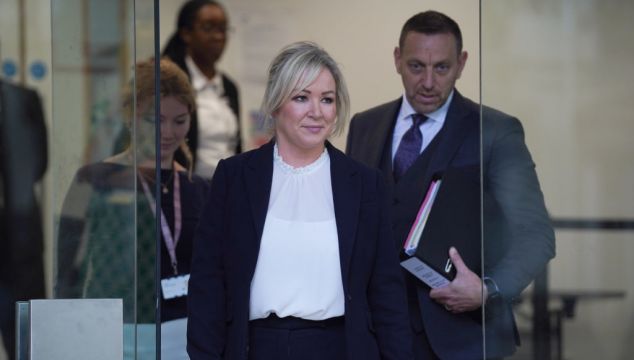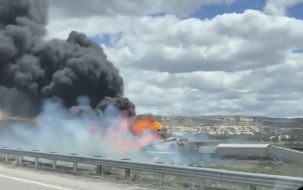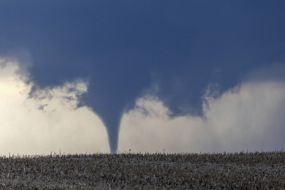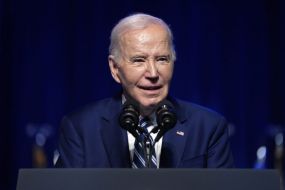Michelle O’Neill has said she was not fully briefed on the detail of risks and potential responses to a pandemic when she was Northern Ireland's health minister.
The Sinn Féin vice president served in Stormont’s health portfolio from May 2016 to the then collapse of the Assembly in 2017 following the resignation of the North's then deputy first minister Martin McGuinness.
She was called to give evidence to the UK Covid-19 Inquiry, which is in an early stage examining the country’s preparedness for a pandemic.
During the pandemic, Ms O’Neill had been the North's deputy first minister.
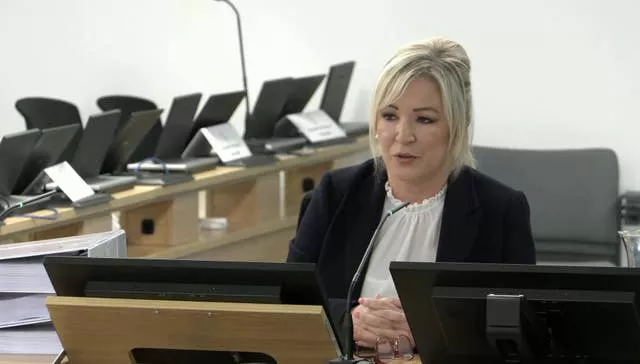
She told the inquiry there had not been an “easy flow of information” from London to Belfast, describing meetings between Stormont and Westminster ministers as often being called at short notice.
Ms O’Neill characterised on many occasions feeling it had been an “ad hoc and tick-box meeting”.
The inquiry is hearing from Northern Ireland witnesses this week, including former first minister Baroness Arlene Foster and chief medical officer Sir Michael McBride.
There were just over 5,300 Covid-19 related deaths in Northern Ireland.
Ms O’Neill started her evidence by expressing her condolences to those who lost loved ones during the pandemic, as well as thanking health staff for their work.
She described her focus as health minister as bringing forward a plan to transform the health service.
The Bengoa Report was published in 2016. However, it was unable to be fully implemented due to the collapse of the Assembly in 2017.
Lead counsel to the inquiry Hugo Keith questioned Ms O’Neill on her knowledge as health minister of potential risks and of emergency civil contingency plans in the event of a pandemic.
Exercise Cygnus, a UK-wide simulation of a flu outbreak in 2016, was also discussed.
Asked whether the essential parts of the civil contingencies structure were brought to her attention when she became health minister, Ms O’Neill said “not that I recall”.
An influenza pandemic had been deemed as the highest tier one risk for the UK.
Ms O’Neill said the first time that was brought to her attention was in terms of Exercise Cygnus in October 2016, several months after she came into post.
“In terms of the first day brief that I would have received, it was clear to me that in the event of a health emergency that we were the lead department but it didn’t go into any more in depth detail than that,” she said.

“Operation Cygnus would have been the first time I would have had more detail provided to me in terms of the significance of the risk and the fact there was need for resilience planning, preparation and Exercise Cygnus itself.”
The inquiry heard while Welsh ministers attended a role play in the exercise, Ms O’Neill did not, instead delegating Sir Michael to attend.
She said he played a full role in the exercise.
Ms O’Neill said her focus had been transforming how healthcare was delivered and securing political support for the plan.
The Bengoa Report was launched just a few days after the Exercise Cygnus role play.
“I thought I had one chance at getting buy-in for this plan and eventually starting to turn things around and fix our health service,” she said.
Ms O’Neill also said the North's Department of Health risk register was never brought to her attention as health minister.
Inquiry chair Baroness Heather Hallett intervened to ask Ms O’Neill whether as an incoming minister it would have been better if she had received a high-level briefing about the risks in the department.

Ms O’Neill responded: “I think that’s a fair reflection.”
She said she had no doubt preparedness arrangements were discussed and made in the department but not brought to her attention as minister.
“I would expect those things to come to me to which I can’t recall any issue ever coming to me in that regard,” she said, agreeing with Mr Keith that was “regrettable”.
It was put to Ms O’Neill that by the time she left office as health minister on March 2nd, 2017, it appears Exercise Cygnus had not fully tested the healthcare systems in Northern Ireland for a prospective pandemic.
She responded: “I think that’s a reasonable assessment, yes.”
Mr Keith also questioned Ms O’Neill on the collapse of the Stormont administration in 2017-2020, putting to her there was a duty owed to the people of Northern Ireland to put them in the best possible place in the event of a pandemic.
Ms O’Neill responded: “I think all of us in political leadership have a responsibility to try to make the political system work, to find the compromises where we can, to find ways to work together and that’s all of us in terms of the political parties in the north.
“But given our special and unique circumstances it’s also the role and responsibility of both the British and the Irish government.”
